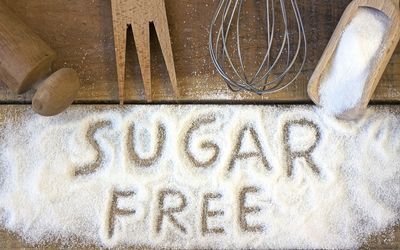Plain packaging for sugar may prove unhealthy
by Gerald Bourne,
2016-03-03 06:08:03.0
IN HIS budget speech, Finance Minister Pravin Gordhan indicated sugar has officially descended into the realm of "sin". The penalty for such sin has come in the form of a sugar tax that will be introduced from April 1 next year.
SA has an extremely high incidence of heart disease and diabetes and the sinful sweet stuff is one of the primary causes of the strain on our already stretched public health-care system. A tax discouraging consumers from buying products that significantly exacerbate these health issues is surely a good thing, right?
From a policy and public health perspective, sugar is now categorised as being in the same class as tobacco and alcohol, both of which are already the subject of heavy sin taxes.
In this context, a punitive tax measure has typically been the precursor to more stringent regulation; aligned in theory with the related public health policy initiative — by disincentivising the consumption of that which is identified as unhealthy.
For tobacco, the plain packaging movement has started to gain momentum globally. Sin taxes are now no longer considered a sufficient deterrent to smoking, and hence the policy agenda has shifted purportedly to make the products less attractive. There is no concrete evidence that the appropriation of the brand owners’ distinctive trade dress does anything other than make the package plain.
However, the policy makers who are implementing regulation of this nature do so under the rhetoric that they are being proactive in the fight against self-inflicted public health woes such as lung cancer, diabetes and heart disease.
The policy initiative regarding sugar raises the question: is a similar plain-packaging movement the next policy step?
What happens when the sin tax does not deter people from purchasing sugary drinks and more extreme policies, such as plain packaging, are implemented?
The negative consequences of such reactive policies on tobacco are that counterfeiting becomes easier, as plain packages are easier and cheaper to replicate.
Counterfeit goods do not enter the market through traditional channels and are, therefore, not subject to value-added tax and import duty.
Initial research into the effects of plain packing on sugary drinks and other sugar-laden products suggests plain packaging could increase consumption.
The finding is based on the premise that "deactivating the marketing components of an unhealthy snack packaging deactivates the inhibition system associated with it".
It suggests that education and public awareness on what is healthy and unhealthy (specifically in relation to sugar) has actually been somewhat effective and by removing branding, the associated concern about these products is mitigated, and may result in consumers consuming more of these types of goods.
Public health policy cannot be based on any one study, but the evidence suggests that the issues surrounding plain packaging — be it on cigarettes, alcohol or high sugar content items — requires more investigation and study before extreme regulatory steps are taken. There may be severe knock-on effects that could lead to other unintended social ills. Such knock-on effects may potentially be worse for public health than the original problem they were implemented to solve.
Bourne is an attorney at Kisch IP

Using plain packaging as a strategy to limit sales of sugary foodstuffs drinks and other sugar-laden products could be counterproductive, the writer contends. Picture: ISTOCK
IN HIS budget speech, Finance Minister Pravin Gordhan indicated sugar has officially descended into the realm of "sin". The penalty for such sin has come in the form of a sugar tax that will be introduced from April 1 next year.
SA has an extremely high incidence of heart disease and diabetes and the sinful sweet stuff is one of the primary causes of the strain on our already stretched public health-care system. A tax discouraging consumers from buying products that significantly exacerbate these health issues is surely a good thing, right?
From a policy and public health perspective, sugar is now categorised as being in the same class as tobacco and alcohol, both of which are already the subject of heavy sin taxes.
In this context, a punitive tax measure has typically been the precursor to more stringent regulation; aligned in theory with the related public health policy initiative — by disincentivising the consumption of that which is identified as unhealthy.
For tobacco, the plain packaging movement has started to gain momentum globally. Sin taxes are now no longer considered a sufficient deterrent to smoking, and hence the policy agenda has shifted purportedly to make the products less attractive. There is no concrete evidence that the appropriation of the brand owners’ distinctive trade dress does anything other than make the package plain.
However, the policy makers who are implementing regulation of this nature do so under the rhetoric that they are being proactive in the fight against self-inflicted public health woes such as lung cancer, diabetes and heart disease.
The policy initiative regarding sugar raises the question: is a similar plain-packaging movement the next policy step?
What happens when the sin tax does not deter people from purchasing sugary drinks and more extreme policies, such as plain packaging, are implemented?
The negative consequences of such reactive policies on tobacco are that counterfeiting becomes easier, as plain packages are easier and cheaper to replicate.
Counterfeit goods do not enter the market through traditional channels and are, therefore, not subject to value-added tax and import duty.
Initial research into the effects of plain packing on sugary drinks and other sugar-laden products suggests plain packaging could increase consumption.
The finding is based on the premise that "deactivating the marketing components of an unhealthy snack packaging deactivates the inhibition system associated with it".
It suggests that education and public awareness on what is healthy and unhealthy (specifically in relation to sugar) has actually been somewhat effective and by removing branding, the associated concern about these products is mitigated, and may result in consumers consuming more of these types of goods.
Public health policy cannot be based on any one study, but the evidence suggests that the issues surrounding plain packaging — be it on cigarettes, alcohol or high sugar content items — requires more investigation and study before extreme regulatory steps are taken. There may be severe knock-on effects that could lead to other unintended social ills. Such knock-on effects may potentially be worse for public health than the original problem they were implemented to solve.
Bourne is an attorney at Kisch IP


























Change: 0.65%
Change: 0.61%
Change: -0.09%
Change: 0.15%
Change: 3.02%
Data supplied by Profile Data
Change: 0.42%
Change: 0.26%
Change: 0.65%
Change: 0.00%
Change: 0.35%
Data supplied by Profile Data
Change: 0.05%
Change: -0.01%
Change: 0.19%
Change: 0.07%
Change: 0.46%
Data supplied by Profile Data
Change: 1.01%
Change: 1.48%
Change: 2.18%
Change: 0.56%
Change: -0.43%
Data supplied by Profile Data